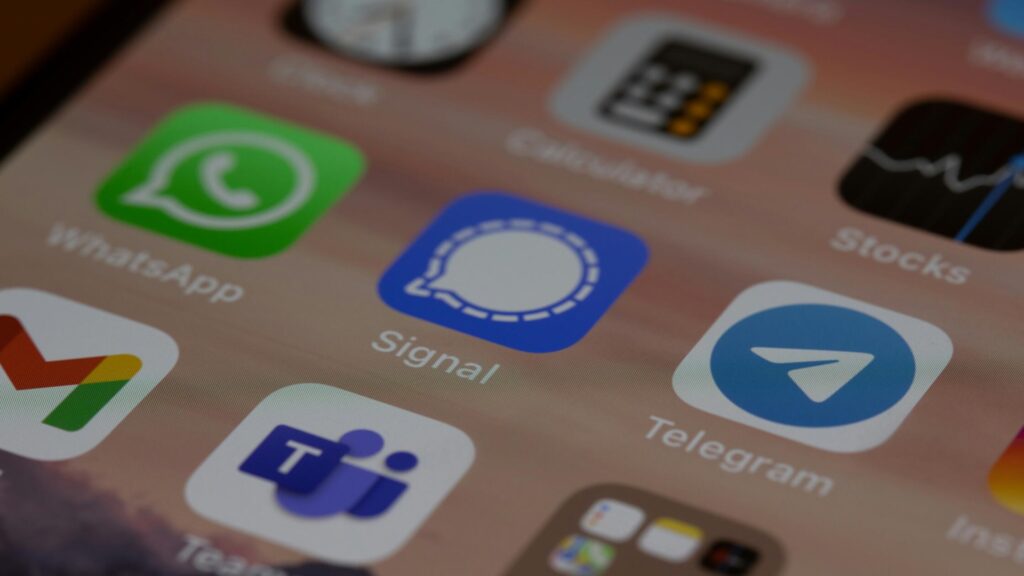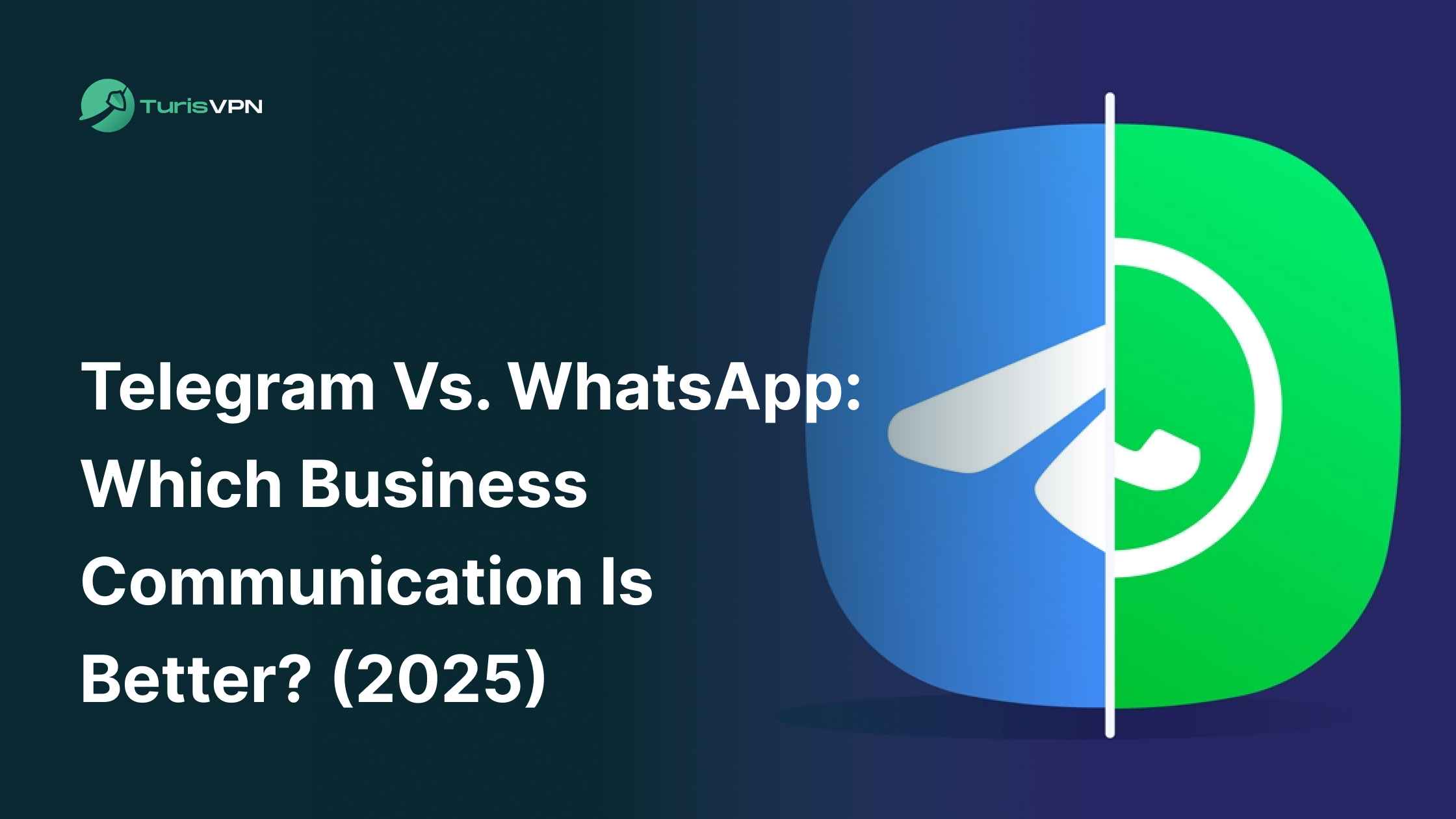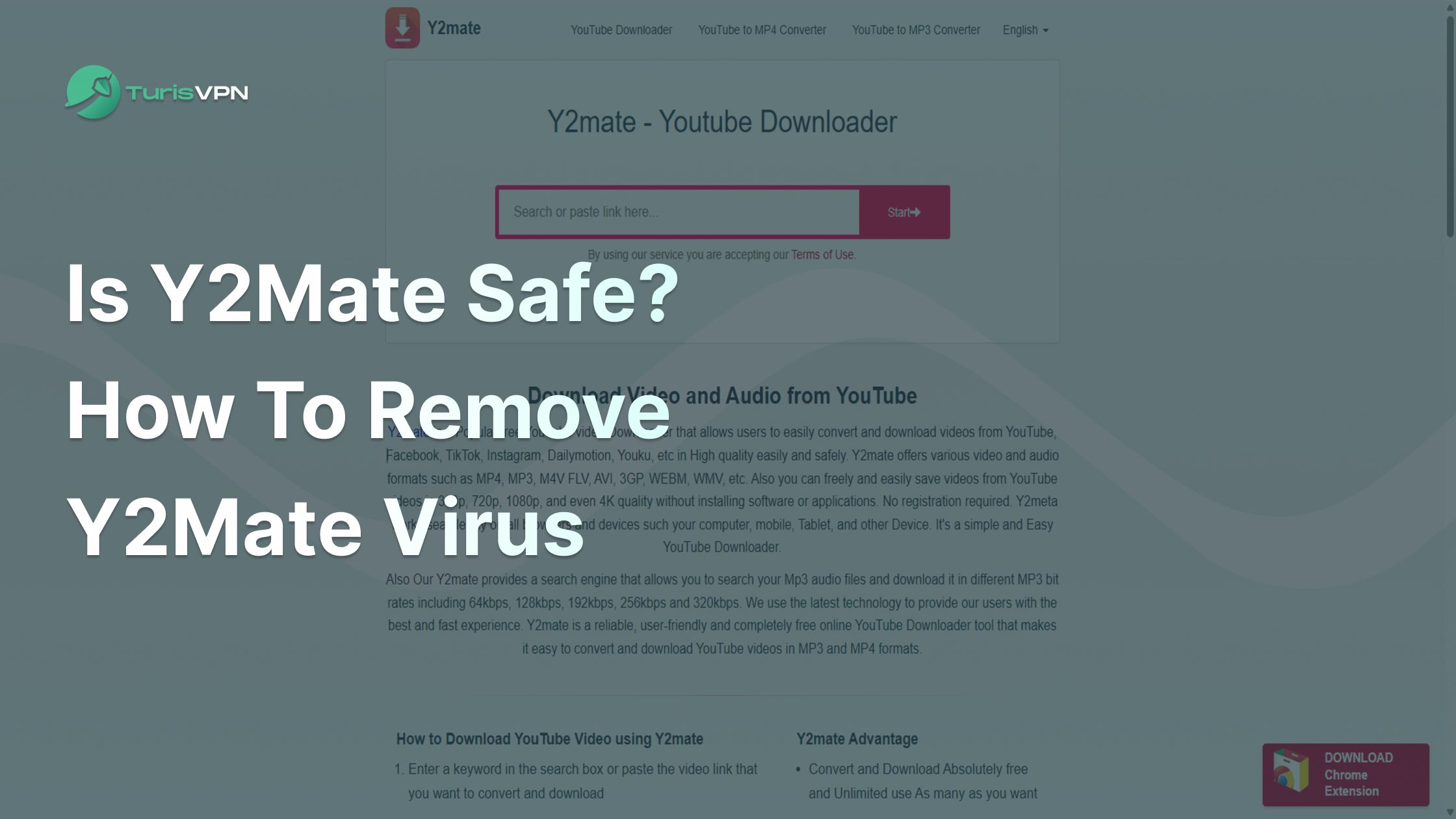Effective communication tools, like Telegram vs. WhatsApp, are vital for businesses in the digital age. The modern workplace relies on messaging platforms that offer not just connectivity but also security, scalability, and integrations with other tools.
As businesses grow increasingly reliant on these tools, two apps have emerged as industry leaders: Telegram and WhatsApp. Both apps cater to global audiences and offer a diversity of features, but they are designed with different strengths and use cases in mind.
Today, let’s explore how Telegram and WhatsApp compare in terms of features, similarities, differences, and suitability for business communication in 2025. By the end of this article, you’ll have a clear understanding of which platform aligns with your needs.

Telegram vs. WhatsApp: Overview
Both Telegram and WhatsApp are household names in the world of messaging apps. While they serve similar purposes, their approaches and capabilities differ significantly. Below, we’ll explore their origins and key offerings.
What is Telegram?
Telegram is a cloud-based messaging app, which was founded and launched in 2013 by Pavel Durov. Known for its emphasis on privacy and scalability, Telegram allows users to exchange messages, multimedia files, and documents seamlessly.
With advanced features like channels, bots, and large group capacities, it’s a preferred platform for tech-savvy individuals and communities.
Telegram benefits or advantages include:
- Cloud Storage: Messages and files are stored in the cloud, making them accessible across devices.
- Advanced Group Features: Supports groups of up to 200,000 members.
- Bots and Automation: Ideal for businesses to create interactive customer service tools.
- Customizations: Offers extensive customization options for themes and user interfaces.
- Privacy settings: Not only prioritize user privacy with all the features like data encryption, app lock, or IP masking, Telegram also allows their users to customarily set their privacy controls or even block other contacts on their app.
In case you are wondering, “how secure is Telegram?”, I hope the information above is everything you need.
Main cons of Telegram:
- Complexity for New Users: Telegram’s wide range of features, such as bots, channels, and customization options, can overwhelm users unfamiliar with such tools.
- Limited Default Encryption: Unlike WhatsApp, Telegram does not enable end-to-end encryption by default for regular chats, relying instead on server-client encryption for most conversations.
- Dependence on Cloud: While the cloud-based system is convenient, it raises privacy concerns as messages are stored on Telegram’s servers unless Secret Chats are used.
- No Built-In Payment System: Unlike WhatsApp Pay, Telegram lacks an integrated financial transaction feature, which could be a drawback for businesses.
What is WhatsApp?

WhatsApp, launched in 2009 and acquired by Meta (formerly Facebook) in 2014, is the world’s most popular messaging app. Renowned for its simplicity and user-friendly adoption, WhatsApp is widely used for personal and business communications alike.
With features like WhatsApp Business and WhatsApp Pay, it has carved a niche in commerce and customer service.
Key highlights of WhatsApp include:
- End-to-End Encryption: Ensures secure communication between users.
- WhatsApp Business: Provides dedicated tools for businesses to connect with customers.
- Global Reach: Over 2 billion active users worldwide.
- User-Friendly Interface: Intuitive design for all demographics.
Some biggest cons of WhatsApp to consider:
- File Size Limitation: WhatsApp’s maximum file-sharing limit of 100MB pales in comparison to Telegram’s 2GB, restricting its use for large files.
- Dependency on Primary Device: WhatsApp’s multi-device support requires an active primary device, which can be inconvenient if the main device is unavailable.
- Limited Group Size: Group chats on WhatsApp cap a smaller number of participants compared to Telegram, making it less suitable for large communities.
- Fewer Customization Options: WhatsApp lacks extensive customization features like themes and advanced personalization available in Telegram.
- Ads and Meta Data Sharing: As a Meta-owned platform, concerns about privacy and data sharing with Meta’s ecosystem discourage some privacy-conscious users.
What’s The Similarity Between Telegram vs. WhatsApp?

Telegram vs. WhatsApp share common ground as messaging apps designed to connect people globally. Key similarities include:
- Text and Multimedia Messaging: Both apps support text, voice, video, and file sharing.
- Cross-Platform Availability: Compatible with iOS, Android, Windows, and macOS.
- Group and Broadcast Messaging: Enable communication with multiple people simultaneously.
- Free to Use: Both platforms offer their core services free of charge.
- Custom Stickers: Users can create and share custom stickers for personalized communication.
Despite these similarities, the two platforms diverge significantly in features, integrations, and security.
What’s The Difference Between Telegram vs. WhatsApp?
| Category | Telegram | Better For | |
|---|---|---|---|
| Features | – File sharing up to 2GB – Channels for broadcasting – Self-destructing messages | – File sharing up to 100MB – WhatsApp Pay – Status updates – Business catalogs | Telegram — More advanced and flexible features |
| Integrations | – Bot API for automation – Integrates with tools like Trello, Slack | – Business API for customer messaging – Integrates with CRMs like HubSpot, Salesforce | Depends: Telegram for tech/custom bots WhatsApp for enterprise CRM |
| Convenience | – True multi-device access without needing a phone connection | – Requires primary phone for web/desktop (multi-device improving) | Telegram — More seamless cross-device experience |
| Security | – Secret Chats with end-to-end encryption – Self-destruct timers | – End-to-end encryption by default for all communications | WhatsApp — More consistent security by default |
| Users | – Popular among tech-savvy users, communities | – Over 2 billion global users – Mainstream communication tool | WhatsApp — Better for global reach and mass adoption |
Features
Telegram stands out with its expansive feature set:
- File Size Limits: Allows file sharing of up to 2GB compared to WhatsApp’s 100MB.
- Channels: One-way communication tools for broadcasting messages to a large audience.
- Self-Destructing Messages: Messages that disappear after a set time.
WhatsApp, on the other hand, emphasizes simplicity:
- WhatsApp Pay: In-app payment system for easy transactions.
- Status Updates: Similar to stories on Instagram or Snapchat
- Catalogs in Business Accounts: Allows businesses to showcase products directly in the app.
Integrations
Telegram offers more flexibility with integrations, including:
- Bot APIs: Developers can build custom bots for automation.
- Third-Party Apps: Seamlessly integrates with tools like Trello and Slack.
WhatsApp’s integrations are more customer-focused:
- WhatsApp Business API: Designed for larger businesses to connect with customers.
- CRM Integration: Works with platforms like HubSpot and Salesforce.
Convenience

- Telegram: Multi-device support without requiring a primary device to stay online.
- WhatsApp: Requires a primary phone for web or desktop access, although recent updates are improving multi-device functionality.
Security
Security is a priority for both platforms, but their approaches differ:
- Telegram: Offers Secret Chats with end-to-end encryption and self-destruct timers.
- WhatsApp: End-to-end encryption is enabled by default for all communications.
Users
- Telegram: Popular among tech-savvy users and communities.
- WhatsApp: Dominates with over 2 billion users, making it the go-to app for global communication.
Make Your Conversations Twice As Secure With TurisVPN

For businesses and individuals prioritizing security, pairing your messaging app with a free VPN like TurisVPN is a smart move. TurisVPN ensures your online activities remain private and encrypted, safeguarding your sensitive communications from cyber threats.
Benefits of Using TurisVPN:
- Enhanced Privacy: Prevents unauthorized access to your conversations.
- Global Accessibility: Bypass geo-restrictions to stay connected wherever you are.
- High-Speed Connections: Enjoy seamless communication without compromising speed.
Combining Telegram or WhatsApp with TurisVPN creates a robust shield against digital vulnerabilities.
Bottom Line
Choosing between Telegram vs. WhatsApp depends on your specific needs. Telegram excels with its advanced features and scalability, making it ideal for large communities and tech-savvy users.
WhatsApp, with its simplicity and widespread adoption, is perfect for businesses aiming to connect with a broad audience. By evaluating your priorities, whether it’s security, convenience, or integration, you can select the platform that best aligns with your goals.
FAQs
Q1. Why do people use Telegram and not WhatsApp?
People choose Telegram over WhatsApp for its superior features, such as larger file sharing, extensive group capacities, and advanced privacy settings like Secret Chats.
Q2. Why do people use WhatsApp more than Telegram?
WhatsApp’s widespread adoption, user-friendly interface, and default end-to-end encryption make it the preferred choice for many users worldwide.
Q3. Does Telegram require a phone number?
While Telegram typically requires a phone number for account creation, there are ways to use it without sharing your personal number, such as using a virtual number or specific third-party services.






